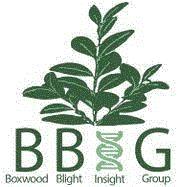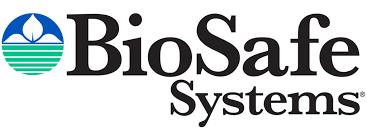HRI Leadership Academy Opens Applications for 2025
Applications for the HRI Leadership Academy Class of 2025 are now open. Participants are guided through a concentrated curriculum designed to develop skills the green industry needs to perform better, grow faster and prepare for the future. The class is a 12-month journey that will explore various aspects of leadership and support growth in your career and our industry. Four in-person classes coupled with about 10 hours of monthly prep work will support your transformation and growth. Plus, AmericanHort covers the bill, so its FREE to you!
Applications are open until February 9, 2024, but don’t wait too long.
If you want to learn more, the HRI Leadership academy has a fantastic website that can be found
HERE.
BBIG Boxwood Seminar Series Returns

The Boxwood Blight Insight Group (BBIG) invites horticulturists, researchers and plant enthusiasts to join an insightful webinar titled, "In the Lab and the Landscape at the National Arboretum: Boxwood Genomics and AI Solutions for Blight Detection and Protection." This webinar will take place on December 19, 2023 at 1:00 p.m. Eastern, offering an exploration of the latest boxwood research from the National Arboretum, with a focus on the intersection of boxwood breeding, genomics and machine learning.
Join Dr. Fred Gouker, a USDA-ARS Plant Geneticist, and co-director of the BBIG project as he sheds light on cutting-edge genomics research and breeding strategies to improve boxwood blight resistance. You'll also learn first hand how artificial intelligence (AI) is enhancing detection and protection of boxwoods, with a glimpse into the future of plant disease management.
Register for the webinar
HERE.
Top Dress-able Mycoinsecticides
I love spending time on-farm with growers, hearing about the issues they're facing and the innovative solutions they come up with to solve them. After all, solving production problems is one of the best parts of being an extension specialist. I always learn something new on a nursery visit. Recently, I've heard quite a bit of talk about biological pesticides, a growing resource with tons of potential.
We've used a liquid mycoinsecticide (that's a fungus that attacks insects) containing Beauvaria bassiana that manages many soilborne insects. We've always had to tank mix and apply. However, when I read about the new granular product that could be top-dressed in the container, I thought this would be a great topic to share for growers.
A new twist on a proven product, BioSafe Systems’ now offers their BioCeres WP mycoinsecticide in a granular form. EPA-registered BioCeres GR is the same
Beauvaria bassiana ANT-03 as the wettable powder (WP) and emulsifiable concentrate (EC) versions, but now available on an organic granule for further versatility. Soil amendments, soilless media incorporation and top-dressing various greenhouse and nursery applications should help defend against soilborne insect pests for several months per application. Labeled to control root aphids, fungus gnats, shore flies, white grubs, thrips larvae and more. BioCeres GR is pending OMRI approval and adds a convenient new weapon to the IPM toolbox for growers.


Vineland Innovation Report 2023-24
For those of you who are loyal readers, you've probably heard of the Vineland Research & Innovation Centre, as my predecessor Matthew mentioned their work fairly often. If you're not too familiar, Vineland is a 218-acre research campus located in Lake Ontario in Niagara and recognized as Canada’s leader in horticulture research and innovation. The goal of this group is to improve the economic viability, sustainability and competitiveness of horticulture in Canada, and through this they conduct a lot of very interesting and informative research that goes well beyond solely supporting Canada's green industry.
Every year they publish an Innovation report, which was just released. Now, I must admit that I wasn't very familiar with the group, at least until I found their most recent copy of this report, and wow—they're conducting a lot of exciting research. I wanted to highlight one of the stories from their report and it was hard to choose. However, with my interest in organic fertilizers, and seeing as I was part of a team at LSU that published a paper on the topic a few months back, I couldn’t help but to promote their work with frass, a more digestible term for insect excrement.
The insect farming community is growing in Canada—and the entire world for that matter. Yes, I said insect farming, and this is a process where insects (often black soldier fly, crickets and meal worms) are raised for protein. Just like with other animals raised for protein, they produce manure that must be dealt with. One of Vineland’s missions is to identify uses for the waste product. According to Rhoda DeJonge, Director of Plant Responses and the Environment, “Insect frass is new for Vineland, but we’ve long had an interest in dealing with by-product streams, and identifying alternative and beneficial uses for them.”
Naturally, fertilizer is one of the first uses we're exploring. We use large animal manure as fertilizer, so there should be no reason why frass cannot find a suitable role in our industry, especially with supplies continuing to build. The current research at Vineland is ongoing, but I know that the researchers at Vineland
(just like our team at LSU) have had favorable results, and I for one expect frass fertilizers to be a growing feature in our industry.
Remember the grass isn’t always greener, but the frass might help!
Check out more about insect frass fertilizers and the entire innovation report
HERE.








Think big,

Jeb Fields
Editor-at-Large
Nursery & Landscape Insider
This has been received by 32,182 of the hardest-working horticulturists in show business!
If you're interested in reaching 32,182 clients who eagerly await every Nursery & Landscape Insider and surely read every word, contact Kim Brown ASAP and she'll hook you up.